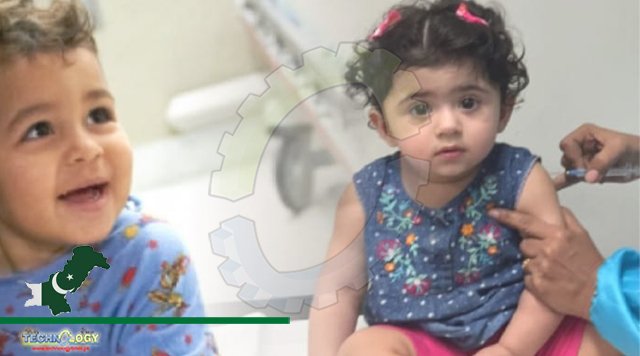In Khyber-Pakhtunkhwa, 39% of children in the remaining districts and over 60% of children in the tribal areas do not receive the full course of vaccinations.

In order to commemorate World Immunization Week-2023, a seminar was jointly organised by the Expanded Programme on Immunization (EPI) Department of Health, K-P, UNICEF, and Pakistan Pediatric Association (PPA-K-P). Dr. Shaukat Ali, director general of the K-P Health Service, urged parents to fully cooperate with medical professionals and immunise their kids in order to ensure their safety.
In Khyber-Pakhtunkhwa, 39% of children in the remaining districts and over 60% of children in the tribal areas do not receive the full course of vaccinations.
The goal of World Immunization Week 2023 was to raise awareness among the people of Khyber-Pakhtunkhwa about the value of immunisation. On this occasion, Dr. Shaukat Ali served as the special guest. He emphasised how crucial vaccinations are for both saving the lives and preventing disease.
He added that the province-wide eradication of the polio virus, including the newly combined districts, is the health department’s main goal. He emphasised the value of routine childhood immunisation and pleaded with parents to assist the EPI teams by vaccinating their children against 12 diseases.
The Expanded Programme on Immunization (EPI) was introduced in Pakistan in 1978 with the goal of vaccinating children. Later, with the help of development partners, several new vaccines, including those for hepatitis B, haemophilus influenzae type b (Hib), pneumococcal vaccine (PCV10), and inactivated polio vaccine, were released in 2002, 2009, 2012, and 2015, respectively. It also aims to safeguard the pregnant women and infants from tetanus.
By immunising kids, parents can help Pakistan achieve Sustainable Development Goal (SDG) 3, which focuses on reducing the child morbidity and mortality, and prevent up to 17% of childhood deaths.
EPI covers vaccination services implemented in order to ensure the immunization of all vulnerable age groups by preventively reaching out to them before they contract and develop infectious diseases: pertussis, diphtheria, tetanus, measles, rubella, mumps, tuberculosis, polio, chickenpox, hepatitis A, hepatitis B.